Anatomy of Travelling
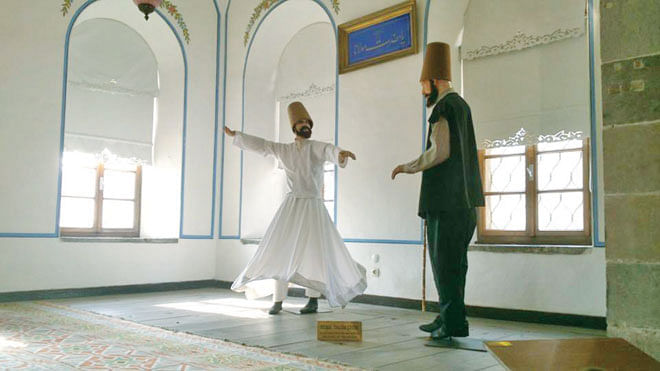
An exact itinerary, bookings, guided tour plans, medicines and a nervous mind have long been companions on my trips. I want to know exactly what I am getting for my money: does 3-star mean no swimming pool? Are there free transfers? Can five people take the 4-person group-package? What else is there to do? Maybe it's a middle-class thing – this need to squeeze value out of every dime I spend. The truth is: I have never really travelled; let alone by myself. Yes, I've sought out predictable experiences and signature landmarks, name brands and status-boosting restaurants. But it had nothing to do with travelling: the kind with open roads and unseen turns. Surely, I often thought to myself, the 'tourist' and the 'traveller' are not the same? On my way to Turkey last December, I finally had time to mull it over.
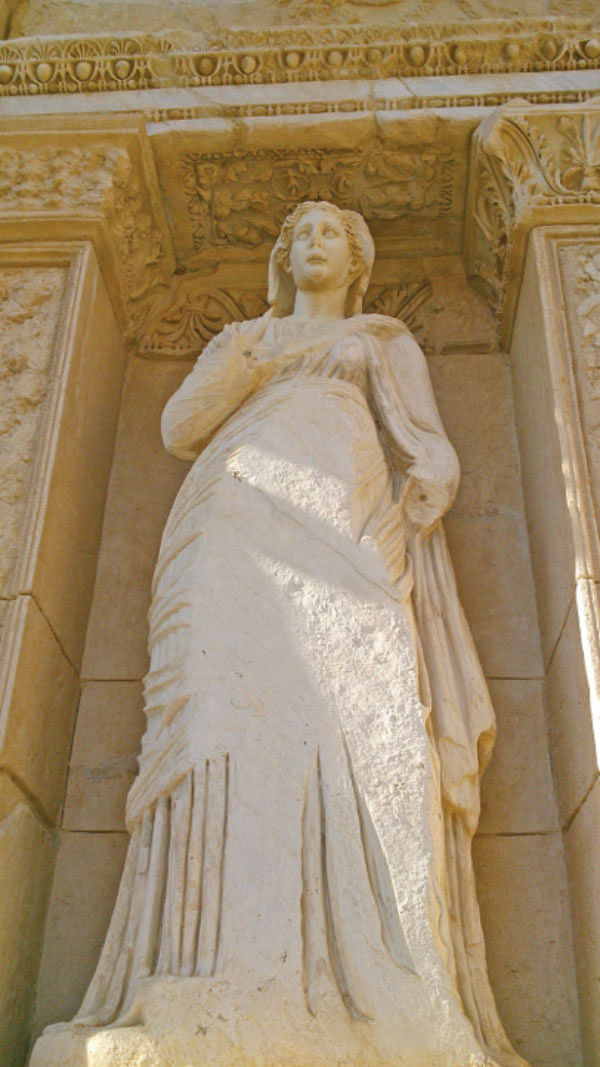
The Tourist revels at being away from home; the Traveler, despite it.
Staring at a shimmering Bosphorus and the European side of Istanbul – I kept thinking of the Wedding season back home. Two friends were getting hitched. And that in turn was getting old friends – estranged or ignored – back together for pre-wedding shenanigans. What if I was foregoing more than I would experience?
I spent anxious evenings at Sultanahmet Square devouring lonely mosques, crowded bazaars and widowed palaces – in and around the pagan temple that became a cathedral, before it was turned into a mosque and eventually, reintroduced as a museum: the incomparable Aya Sofya. Wallowing in a bygone empire's shadow, I chatted up locals and travellers in search of advice. By night, I poured over maps to chart out a closed-jaw route. The idea was to avoid the touristy destinations – the ski slopes, resorts, chain-hotels – and head into the Anatolian heartland. Into hostels, bazaars and homes.
The Tourist is all about himself; the
Traveller, about everything else.
The IDO Fast Ferry whisked me across the Sea of Marmara away to a sleeping Bursa in just over two hours. It was a plush region rich in history. Three hundred years after the times of Jesus / Isa (PBUH), Emperor Constantine convened bishops in nearby Nicaea to devise the Doctrine of Trinity and settle the 'son of God' question once and for all. What happened in this province of Bursa changed Christianity forever: so much so that when Seljuk Turks took the city 700 years later - it prompted European armies to march in what would become known as the first Crusade.
A merchant at Bursa's Old Silk Market suggested that, if clothes shopping or ski-resorts weren't my thing, I should travel to Cumalıkızık. And I did.
Perched along an archaic, cobblestone walkway up the Uludag (Olympus) Mountain, Cumalıkızık is a village frozen in time. It has been perfectly-preserved for 800 years since early Ottoman times. A traditionally-attired woman invited me into stone-floored, wooden lodgings for a taste of freshly-baked pancakes, raspberry pickle and scented tea. The most modern item in her household appeared to be a book of matches.
Up ahead, an icy path plateaued to reveal a grand, pristine view of Mount Olympus covered in snowy cascades. There was a melancholic silence that huddled over the valley in between; an absolute emptiness that left me in the company of my mind. It told me that if I could endure this time alone with my mind –I could survive everything else.
The Tourist worries about the journey back; the Traveller revels at the journey ahead.
Two days later, I was alive and in ancient Selcuk. Legend has it that after the death or disappearance of Jesus, his mother Meryem (Virgin Mary) fled Jerusalem and travelled, with John the Revelator, to this region. Her last abode still remained: a modest, earthen-brick building, now serving as a chapel. Outside, people of all religions were writing down their wishes on paper, napkins, tissues or even torn sleeves – and sticking them on the walls to form a dense patchwork of diverse desires. “Let my family – and if possible the World – be at peace,” one note pleaded. “Let him still love me,” said another.
Downhill from Meryem Ana, are the vast, ancient ruins of Ephesus, with its majestic Greek-style gates, edifices, granite columns and halls. A probable Hittite capital, one of Alexander the Great's conquests, Roman Emperor Augustus' capital and a jewel in the crown of Greco-Persian-Turkic history – Efes is simply overwhelming. A humbling walk through this city from 10th century BC – the Temple of Hadrian, Celsius Library, amphitheater, terrace houses and regal statues of Marble – it's easy to be astounded by its level of organization and its illustrious history.
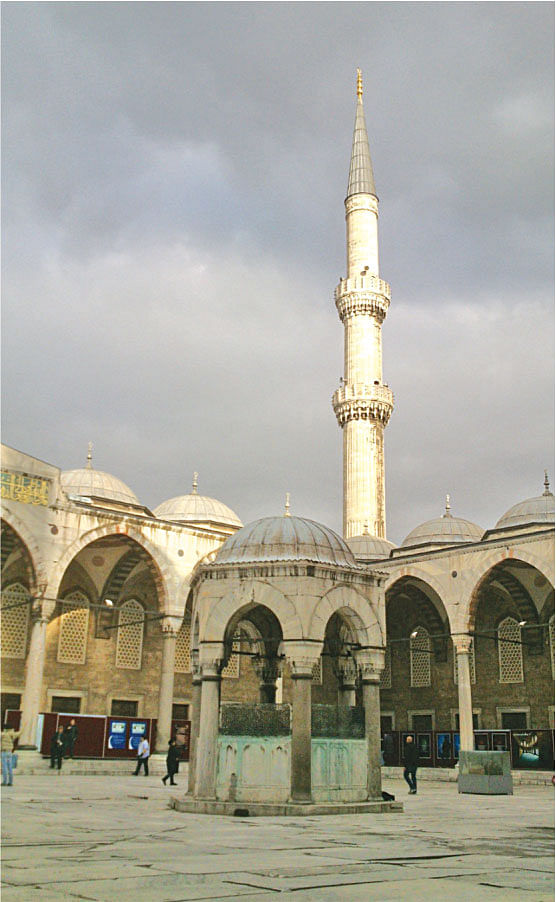
The tourist sees what he has come to see; the traveler sees what he sees.
More history awaited me at Konya, the city of Jalal Al-Deen Rumi, the poet. Around the Mevlâna's green-domed tomb, were the remnants of the lodge of the whirling dervishes. Inside, the air cowered under gusts of cold and bouts of piety. Forlorn saplings stood as truthfully as trainee dervishes. At the mausoleum entrance, an oriental-looking woman in her 40s was trying to get taken - a leaping, mid-air picture of her. Staging this meant she had to be bouncing up and down – face, red and hair, ruffled; giggle, ill-suppressed and grunts, loud. Oh! The irony of Asceticism drawing tourists!
I walked around the museum - stopping by tombs, beautifully-ornate Qur'anic scripts and stalls with life-size mannequins recreating the times of the Mevlevi Tariqa. The Green Tomb held a timeless appeal in its final inscription:
Come, come, whoever you are,
Wanderer, worshiper, lover of leaving.
It doesn't matter.
Ours is not a caravan of despair.
Come, even if you have broken your vows a thousand times.
Come, yet again, come, come.
I was left with the nagging feeling that we had become increasingly devoid of tranquility, integrity and insight – and had to resort to seeking over-the-counter Spirituality in the khanqahs of Konya, temples of India or Cathedrals of Rome; Spirituality, like 2-minute noodles: cheap and instant.
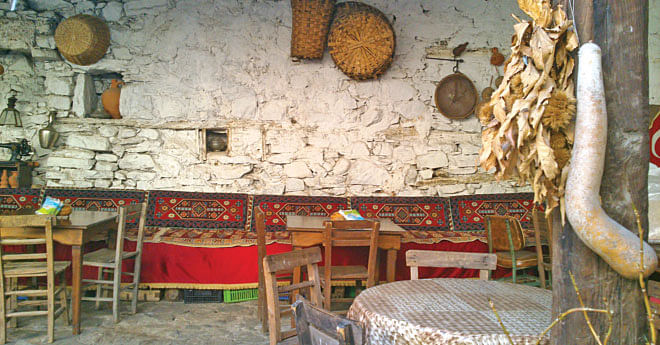
The Tourist longs to be
entertained; the Traveller entertains himself.
A week and a few misadventures later, I had reached the alpine region of Cappadocia. A short trek to Uçhisar revealed a sleepy, hilltop town with breathtaking, panoramic view of Fairy Chimney Mountains and the Pigeon Valley. The slow ascent took one to the Uçhisar Castle – a majestic, multistoried 10th century edifice carved out of a monolithic mountain, complete with ground-floor kitchens and refectories for the medieval landlords.
Walking the black-ice laced streets, I located my virtual, Uçhisar friend from Couchsurfin, Riza Isik. He embraced me gleefully offered me his best Ottoman Era cave- suite. Riza, his wife Gokce and I stayed up talking over endless cups of tea. We were overjoyed that we had finally met after long threads of web correspondence. We talked country, religion and politics. Riza argued that an Islamic country didn't really need a brute-force injection of Secularism. Islam is already a secular religion. I couldn't help agreeing that firebrand Secularism is just another form of (ir)religious extremism.
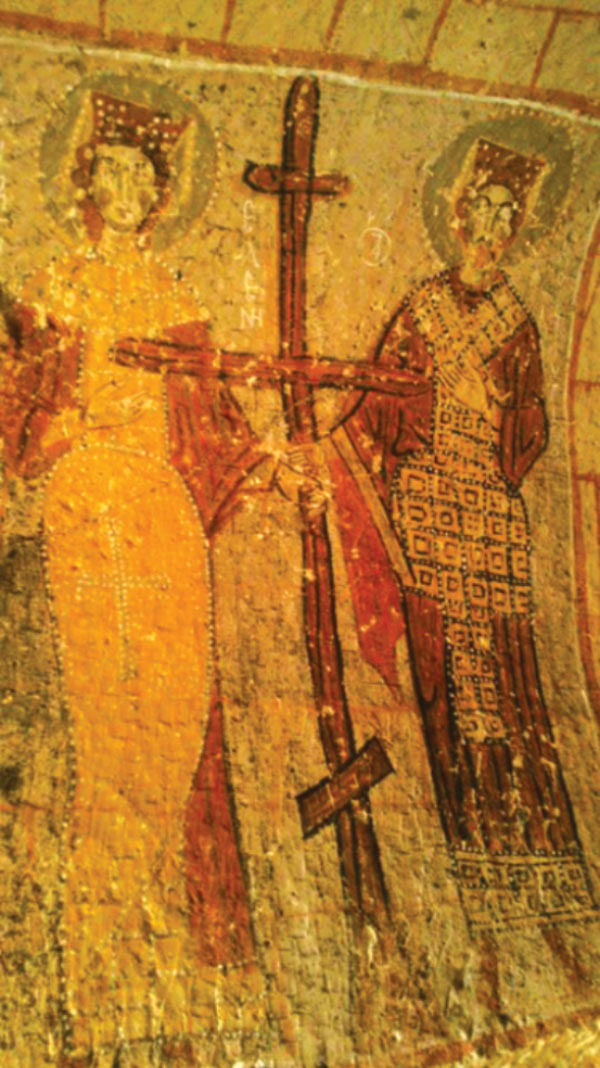
The Tourist stops to smell the rose; the
Traveller waters the plant.
I was sitting at the airport, it was the last day of my journey. “Arabi?” the man beside me asked. With a five o'clock stubble, sleek grey-flecked hair and spectacles, he looked like an intellectual. He was Ahmet, a Syrian refugee; a daring border-jumper, a modern day Tom Hanks stranded in a strange airport for the past 22 days. Ahmet, too, had been travelling – out of necessity, out of a crumbling homeland. Leaving behind parents and travelling separately from his wife to increase the likelihood of at least one surviving – his was a very different journey; the kind that finds itself on page-6 and remains comfortably distant till the day you meet the bespectacled, somber and humble man who made it.
Ahmet took me to meet his fellow countrymen (and women) who had been arriving one by one. It was a 20-something group, huddling on floor-mats like livestock, sharing a solitary laptop and fenced in by shoes, candy wrappers and paper cups. Their children, unwashed and unkempt, they sent out to scrounge for leftover cookies and abandoned water-bottles. The entire bunch was quite the eyesore. Passengers steered clear of them. As I kneeled down at their corner, one of the children – the most beautiful, blue-eyed, rosy-cheeked girl – offered me her near-depleted pack of chips. I can't remember feeling anymore helpless than I felt at that moment: I was a tourist at the end of his trip, with a return-ticket in hand, a car due at the airport and a meal waiting at home. What, save a handful of change, did I have to offer this child? I had thought her poor for picking up scraps. But I suspect I was miserably wrong. This little girl, whose name I did not bother to ask, knew how to spread whatever little bounty Life had afforded her. It was this girl, then, who was the true traveller.

 For all latest news, follow The Daily Star's Google News channel.
For all latest news, follow The Daily Star's Google News channel. 




Comments